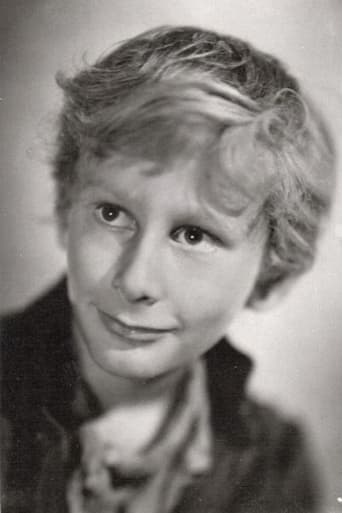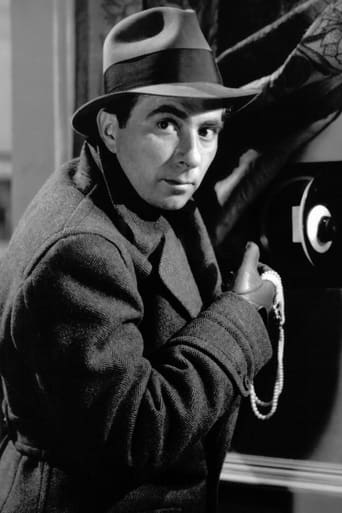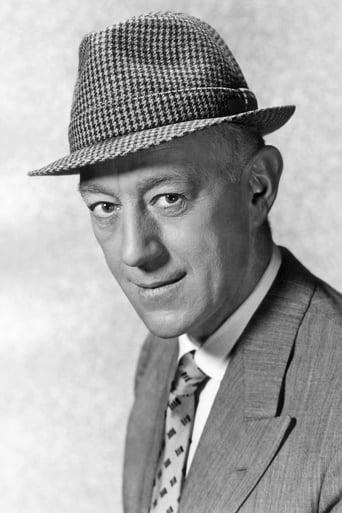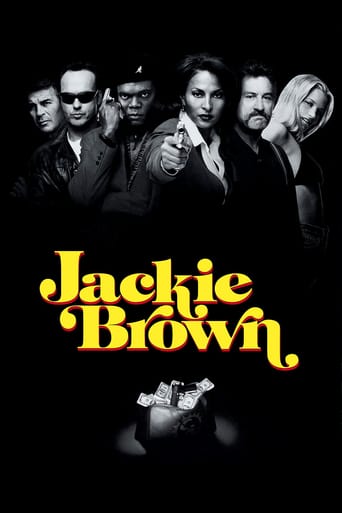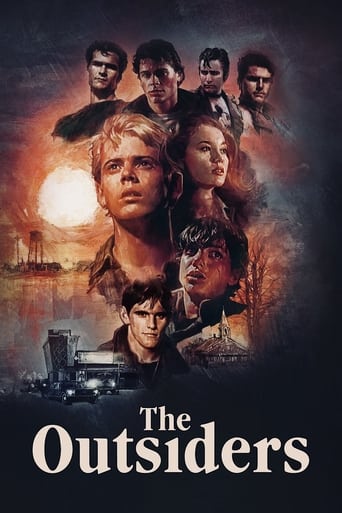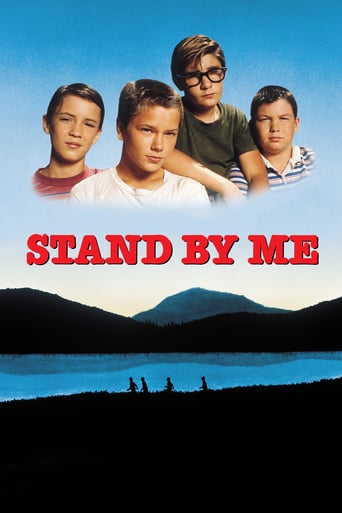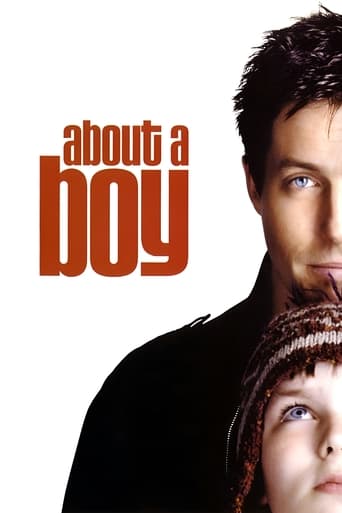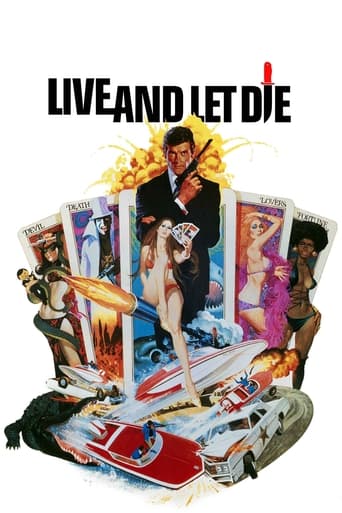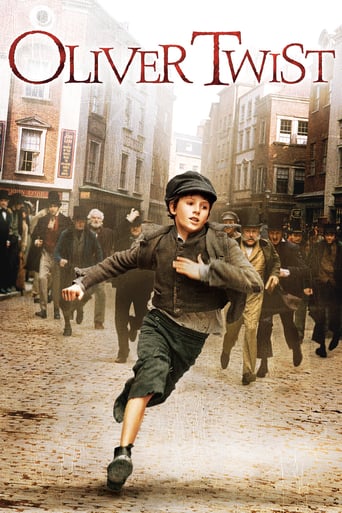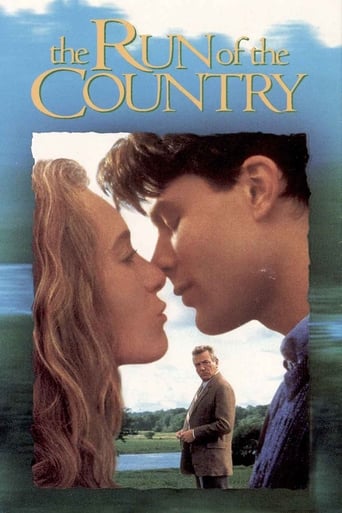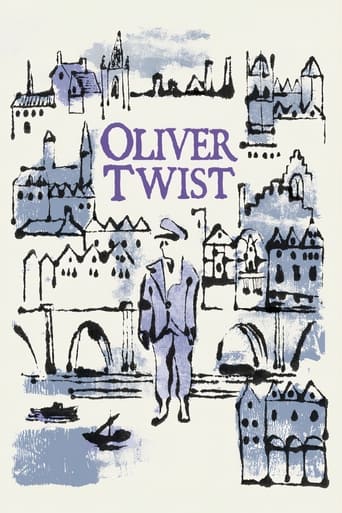
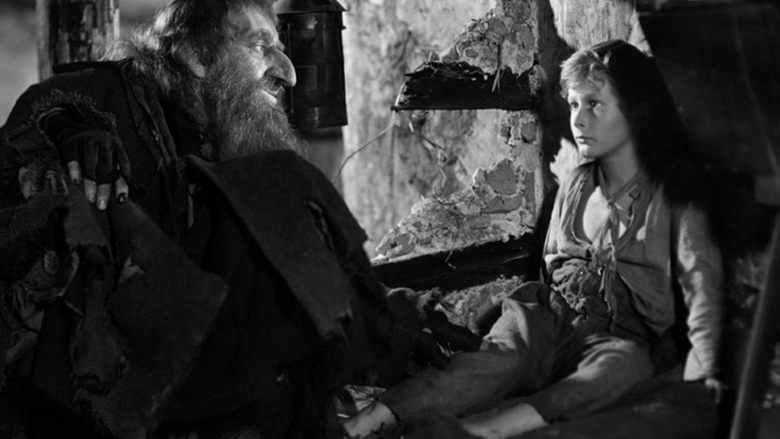
Oliver Twist (1951)
When 9-year-old orphan Oliver Twist dares to ask his cruel taskmaster, Mr. Bumble, for a second serving of gruel, he's hired out as an apprentice. Escaping that dismal fate, young Oliver falls in with the street urchin known as the Artful Dodger and his criminal mentor, Fagin. When kindly Mr. Brownlow takes Oliver in, Fagin's evil henchman Bill Sikes plots to kidnap the boy.
Watch Trailer
Cast


Similar titles
Reviews
Oliver Twist (John Howard Davies) is an orphan who works in a poorhouse under the authority of Mr Bumble (Frances L Sullivan) until he is given the opportunity to learn a trade. We follow his story as he runs away from his lodgings from the undertaker Mr Sowberry (Gibb McLoughlin) to seek a new life in London. Once he arrives in the "Big Smoke", he is befriended by the Artful Dodger (Anthony Newley - who would soon start shagging Joan Collins in real life) who takes him to meet Fagin (Alec Guinness). Fagin runs an organized gang of young street criminals and Oliver now has a new life on the streets robbing people and assisting in burglaries. However, he manages to break free of this gang only to be kidnapped back again. Meanwhile, there is a search for him underway and an investigation into his past...It's Charles Dickens so there are plenty of twists and turns throughout the story, some of which are highly improbable, eg, Oliver involved in the robbery of Mr Brownlow (Henry Stephenson) who turns out to be his grandfather. No WAY! But...... so what? The story keeps you watching and the whole film takes place in various claustrophobic settings that are almost mesmerizing.The cast are good with my favourite performances coming from Alec Guinness, Robert Newton as the psychopath "Bill Sikes", Anthony Newley and Frances L Sullivan. Guinness delivers a stereotypical Jewish portrayal that in these times of lunatic political correctness just wouldn't be allowed. There would also be accusations of paedophilia as he lives with his gang of young boys and calls them all "dear". Who knows, eh? Newton is one scary, nasty man and the scene where he confronts Kay Walsh who plays his girlfriend "Nancy" is frightening and may indeed have you turn away from the screen as he kills her. It's a shame that Kay Walsh wasn't given a bigger role. As it stands, although her heart was good and so she is likable, she screams way too much and just becomes irritating. Almost as irritating as Hattie Jacques singing in the pub - truly dreadful! Anthony Newley provides the iconic imagery for the "Artful Dodger" and is soon going to begin shagging Joan Collins, while Frances L Sullivan provides some golden moments of humour, eg, his rationalizing of the prerogative of a man to command and a woman to obey is very entertaining.Overall, I enjoyed the film despite the rather lacklustre girlie John Howard Davies in the lead role. And I will be keeping onto the film for future viewing. I can't stand films about kids but this one has broken the mold for me. It's also stoked an interest in me to read the book!
As a stand-alone film, this is a fine accomplishment. It boasts very good acting, beautiful cinematography and almost matches the harshness Dickens so artfully portrays in his novel. The savagery meted out to the poor and destitute by the authorities and the middle class stands to this day as a major indictment of 19th century English society. But when the film is evaluated in light of the novel, there's no doubt purists and dickensians will be disappointed - because the screenwriters have rewritten parts of the story. The biggest change is Mrs. Maylie and Rose have simply been removed: they are major players in the novel. Also many details have been changed, for example, in the novel, Sikes's dog - not Oliver - is on the rooftop with him in his final moments. Viewers interested in this film solely as cinema should be thoroughly satisfied by its excellence. For those demanding accuracy to the book, you will need to ease up and drop some of your demands before watching.
Of the five extant full-length features based on Charles Dickens's Oliver Twist (among which I include the 1968 musical), this 1948 version is often considered the yardstick against which all others are measured. It's said that comparisons are odious, but it's necessary to examine it in relation to the other four to reveal why it is so highly regarded, as well as to some extent debunk its revered status.First, we must begin by acknowledging that Dickens's book is a great but somewhat flawed work. It may be considered bad form to even think of criticising an undisputed genius, but bear in mind that this was only his second novel, and he was a young and inexperienced writer. Oliver Twist's strength lies in its larger-than-life characters, sparkling dialogue and imaginative set-pieces, but structurally it has some huge problems. This is why, throughout all the screen versions, depictions of figures such as Mr Bumble, Fagin and Bill Sykes differ very little, key scenes such as asking for more or the handkerchief stealing game are staged similarly, but there are many variations as to the overall plot. While the versions made in 1922 and 1933 are faithful if rather pared-down adaptations, the screenplay by David Lean and Stanley Haynes was the first to do the unthinkable and rewrite Dickens.Probably the most drastic and for me the most necessary difference between this picture and the novel is Oliver's fate after he is forced to accompany Bill Sikes on the burglary. In the novel he is wounded and taken in by the family whose house it is. However, Lean and Haynes do not show the burglary, and keep Oliver in the custody of Fagin and co. until the finale. This is a vast improvement, as it means Oliver remains in real danger throughout the last act, and adds extra motivation to the race to bring the criminals to justice. So crucial to the impact of the picture was this change that it was used again for the 1968 musical and Roman Polanski's 2005 effort, and the image of the young hero clambering over the rooftops with Sikes urging him on is now established in the public conscious.However there is one problematic way in which the 1948 film deviates from all the other versions, and that is in the size of Nancy's role. She is introduced fairly late, after Oliver's arrest, and she gets precious little screen time before being murdered. Significantly, her fondness for Oliver is not developed; she never even speaks to him, and consequently it seems odd when suddenly steps in as his protector. She is not even portrayed especially sympathetically, and as a result her death is not the blow to the audience that it should be. To me, the character of Nancy is the key to the whole thing; she is a surrogate mother (or big sister) figure to Oliver before he finds his real family, and her brutal murder is the biggest wrench of the story. Even the 1933 version, which otherwise has all the sophistication of a school play, recognises this.The 1948 version at least looks great thanks to superlative cinematography by Guy Green, and of course the direction of David Lean. This picture is often praised for its harsh and grimy portrayal of Victorian England's underbelly, and Lean loads every frame with tone and character. He often throws in shots with no actors, which do not contribute directly to the story but add atmosphere to the scene. This kind of shot was by and large a no-no in Hollywood at the time, and for good reason because it can be a distraction, but Lean gets away with it because he does it so well. A great example is the series of storm shots from the opening scene, the best of which is a shot of two thorny stems twitching in the wind, instantly forcing us to think of physical pain, after which we cut to Oliver's mother in agony. The effect is more powerful than would be the shot of her alone. My only complaint with Lean's direction is his tendency to over-direct the low-key scenes, such as the one of Mrs Bumble setting about her husband, which is shot in the same manner as Oliver's assault on Noah Claypole, but as a scene it deserves far less weight.And then we come to the actors. Aficionados of classic British cinema will understand that no-one but Robert Newton could have played Sikes in this production, and he's at his eye-rolling best here, although not as scary as Oliver Reed was in 1968. Kay Walsh is passable, but isn't right for Nancy, and her casting probably has something to do with who her husband was. Alec Guinness's Fagin has been denounced as anti-Semitic; in fact it goes right through anti-Semitism and out the other side. This caricature, with the unfeasibly massive nose and beard flapping around like a bit of old carpet, is simply ridiculous. True, Fagin is supposed to be a comedy character (and to his credit Guinness does ham it up funnily), but Oliver Twist is not a farce, and that over-the-top make-up is all wrong.Through successive stage and screen versions, the story of Oliver Twist has continued to evolve. The musical eliminates the subplot with Monks, and the 2005 picture even goes as far as to remove the coincidence of Oliver being related to Mr Brownlow. This 1948 adaptation deserves credit for making this process of refinement acceptable, which is ironic as in spite of its break with tradition (and its flaws) through its tone and character it is probably the closest in spirit to the original text.
Having read the original novel by Charles Dickens, I would term this film a fairly good adaptation, portraying the main characters as they we would imagine them to be in real life. Casting was excellent, the actors playing Mr Bumble, Fagin and Sykes especially well-selected for their roles. Kudos to the camera job, depicting the depressing conditions of the workhouse and the deplorable streets of London in the Victorian era, and the fact that it was done in black and white emphasizes the gloomy atmosphere pervading the situations at the time. I only rate this movie a 6 due to the fact that there are a great deal of unresolved issues in the storyline, Example, how Nancy and Bill Sykes recognized Oliver in the street when he was sent on an errand by Brownlow when clearly they hadn't met him before? Also, how Edward Leeford aka Monks knew which workhouse Oliver had grown up in, as well as discover his whereabouts in London? As I am familiar with Dickens, I know how exactly the storyline went, but for those who haven't read the movel before, it could cause a bit of confusion.


